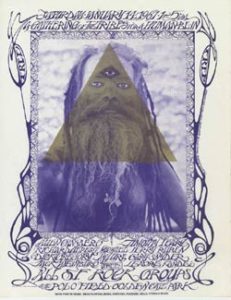Ignored Obscured Restored
Back in the mid-‘60s, a guy named Chet Powers wrote a song called “Let’s Get Together”. It was originally recorded by the Kingston Trio in 1964 but would become one of the best known “hippie anthems” of the ‘60s.
A version of the song was included on the Jefferson Airplane’s debut album, Jefferson Airplane Takes Off, released in 1966.
But in 1967, the version that is most notable was released by the Youngbloods (featuring Jesse Colin Young) retitled simply “Get Together”. It was released as a single that year and stalled at #62. But upon its re-release in 1969, it rose all the way up to the peak chart position of #5. The popularity of the re-release was tied to the song being used in a PSA for the National Conference of Christians and Jews. Maybe we need to bring it back again!
Powers was going by the stage name Dino Valenti as a member of the San Francisco’s Quicksilver Messenger Service. Drug busts landed him in Folsom Prison, so he wasn’t on the band’s first couple of albums until he was able to rejoin in 1970. While in prison, he needed some cash for his legal defense so in 1966 he sold the rights to “Get Together” to Frank Werber who was the colorful manager (and Holocaust survivor) of the Kingston Trio. I don’t know if it is true, but I’ve read his price was $100! Werber’s royalties certainly far exceeded that. The bad move by Powers brought the whole story full circle.
Enjoy… until next week.


 Today is the 50th anniversary of the Human Be-In that took place in San Francisco’s Golden Gate Park on Saturday, January 14, 1967.
Today is the 50th anniversary of the Human Be-In that took place in San Francisco’s Golden Gate Park on Saturday, January 14, 1967.